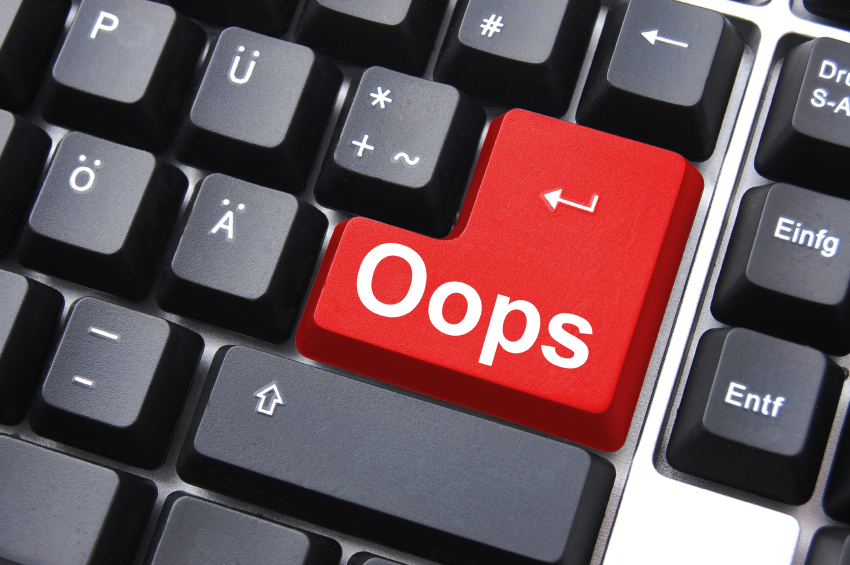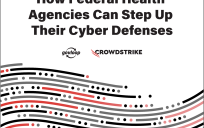If you’re like me you felt the same sense of relief in response to the recent media reports of cybersecurity breaches as you felt the last time you joined a line of rubberneckers creeping past a fender-bender on the other side of the highway. At least it’s not me.
Cyber attackers routinely go after internal emails and records belonging to government agencies, just as they go after companies in the private sector. But aside from the problem of illegal hacking and data breaches, as U.S. government employees, we have additional reasons to be mindful of our workplace communications, arising from our status as one of the world’s most transparent governments.
As federal government employees we willingly accept the fact that we have no expectation of privacy with respect to either our emails or our Internet activities when we log on to our workplace computers each day.
We have obligations to be transparent and appropriate with regard to information we generate in the workplace, because all of our correspondence, including emails, are potentially a matter of public record. They are governed by the Freedom of Information Act (FOIA), which was enacted in 1966, long before the advent of the Internet. For more information about FOIA, see http://www.foia.gov. President Obama, during his first day in office, issued a memorandum to all federal agencies regarding FOIA and open government (see http://www.whitehouse.gov/the_press_office/FreedomofInformationAct/).
Before we hit “send,” we would be wise to imagine what would happen if that email were published on the Internet, because it very well could be, whether through illegal hacking or perfectly legal disclosures. Here are 5 good practices to consider as we accept – and embrace – the idea of transparency in the workplace.
- Nothing to Hide. This is one of the ideas of the sexual revolution of the 1960s, which paved the way for men and women to fight repression through the power of self-expression, and today where same-sex marriages are recognized by the federal government and are legal in 35 states. When we take ideas out of the closet and put them out in the open, we have the opportunity to be more inclusive and open to diverse points of view.
- Take It from Thumper. “If you can’t say something nice, don’t say nothin’ at all.” This also applies to sarcastic remarks and seemingly benign commentary. Email shouldn’t be much different from official correspondence on company letterhead. Keep your ideas professional, to the point, and don’t offer your entertaining analysis or personal opinion. Remember as public servants, we’re paid to provide helpful information and our value-added expertise.
- Know Your Audience. It wasn’t so long ago that we used actual conversation to communicate. Email is not the same – and one reason is because the audience is not so straight forward. Before you send an email, think about who might have the opportunity to see it and why. In your communications with members of the general public, this might not always be obvious. Stand up, walk around, talk to your colleagues. Pick up the phone and speak to a teleworker. Let the back-and-forth conversation be just that – a conversation.
- Say What You Mean. It’s hard to resist the temptation to incorporate slang into emails, but I have trouble imagining an appropriate opportunity to use “LOL” at work. Mostly this is because you would never actually say “laugh out loud” or “lots of love” to a colleague or client in a professional context but also because in order to communicate effectively you do not want to be ambiguous.
- Collaboration versus Micromanagement. Especially as a supervisor, an open door approach to email can be positive if you are collaborative or negative if you are a micromanager. Let’s look at architecture, for example. Frank Lloyd Wright’s Johnson Wax buildings in the 1930s and 1940s are examples of both ideas. He designed the open plan of the laboratory building so that scientists could bounce ideas off each other, fostering collaboration. But the administration building put clerical staff on the main floor surrounded by executive offices looking down over them as they typed, answered the phones, and ate their sandwiches. This space produced a culture of micromanagement, and the idea was short-lived.
So let’s ring in the New Year with a commitment to be open and diplomatic and collaborative and to embrace the Internet’s open door, propelling us to do our work efficiently while enjoying the spirit of our colleagues’ positive attitude. As long as our professional goals are aligned with our organization’s mission, openness, diplomacy, and collaboration might just be our new Best Friends Forever.
The views expressed here are those of Ms. Walker and not those of the U.S. Department of State or the U.S. government.
Carolee Walker is part of the GovLoop Featured Blogger program, where we feature blog posts by government voices from all across the country (and world!). To see more Featured Blogger posts, click here.





Thanks for this great reminder, Carolee. A colleague and I, just this morning, talked about the value of the “Thumper” principle in private and public life.
Nice narrative. I particularly like the connections you make.
I wait at least 24 hours to send and email when the stakes are high or my opinions differ. Hence, thinking about it, crafting it just right and have some one review it before I send it.
Great post Carolee! I love your positivity! These are great tips to keep email professional. I think we’ve all had an email that we wish we could get back after sending before.